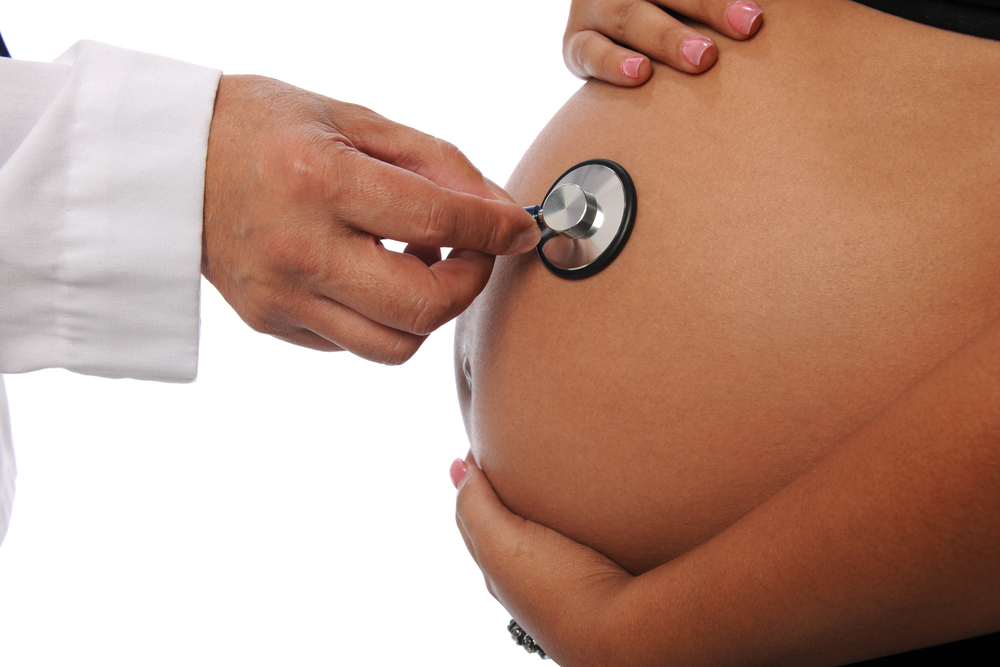C-Sections Linked with Childhood Obesity

Babies delivered by Caesarean section may have an increased risk for obesity in childhood, a new study suggests.
In the study, children born by c-section had double the odds of being obese at age 3, compared with those born vaginally, the researchers said.
The results held even after the researchers took into account factors that might increase a child's risk for obesity, including the mother's weight before pregnancy, her weight gain during pregnancy, and the child's birth weight.
The findings suggest that prevention of childhood obesity may be yet another reason to avoid unnecessary c-sections, said study researcher Dr. Susanna Huh, a gastroenterologist at Children's Hospital Boston. C-sections have previously been associated with an increased risk of asthma for children, and an increased risk of bleeding and infection for mothers.
Currently, about one-third of babies in the United States are born by c-section.
The study only found an association, and not a cause-effect link. It's possible factors not accounted for in the study could explain the link.
For now, mothers who choose to have their babies delivered by c-section without a medical reason should be aware of this link, Huh said.
Sign up for the Live Science daily newsletter now
Get the world’s most fascinating discoveries delivered straight to your inbox.
C-section risk
Huh and colleagues analyzed information from 1,255 mothers and their children from eastern Massachusetts. Mothers joined the study before they were 22 weeks pregnant, and the children were followed until age 3.
About 22 percent of the babies were delivered by c-section.
Just under 16 percent of children born by c-section were obese at age 3,compared with7.5 percent of children born vaginally.
After accounting for a number of factors that could influence the children's obesity risk, including whether they were breastfed and how many calories they ate at age two, the link held true.
When the researchers limited their analysis to include only women who were not overweight before pregnancy, the strength of the link increased.
There was no link between birth by c-section and risk of being overweight (but not obese) at age 3, the researchers said.
Participants had relatively high levels of education and income, and the results may not apply to the population as a whole, the researchers said.
Gut bacteria and obesity
The study is well done and "adds more to the ammunition we already have, which is enormous, to avoid unnecessary c-sections," said Dr. Mitchell Maiman, the chairman of Obstetrics and Gynecology at Staten Island University Hospital, who was not involved in the work.
Although the exact cause of the link is unknown, the researchers speculated the composition of gut bacteria in children born by c-section may put them at risk for obesity.
Previous studies have shown babies born by c-section have a higher proportion of bacteria called Firmicutes, and a lower proportion of bacteria called Bacteroides, compared with babies born vaginally. Studies in mice suggest higher numbers of Firmicutes may increase the risk of obesity, and studies in people suggest lowering Firmicutes levels is associated with weight loss, the researchers said.
The study is published online today (May 23) in the journal Archives of Disease in Childhood.
Pass it on: C-section delivery is associated with an increased risk of child obesity.
Follow MyHealthNewsDaily staff writer Rachael Rettner on Twitter @RachaelRettner. Find us on Facebook.

Rachael is a Live Science contributor, and was a former channel editor and senior writer for Live Science between 2010 and 2022. She has a master's degree in journalism from New York University's Science, Health and Environmental Reporting Program. She also holds a B.S. in molecular biology and an M.S. in biology from the University of California, San Diego. Her work has appeared in Scienceline, The Washington Post and Scientific American.









